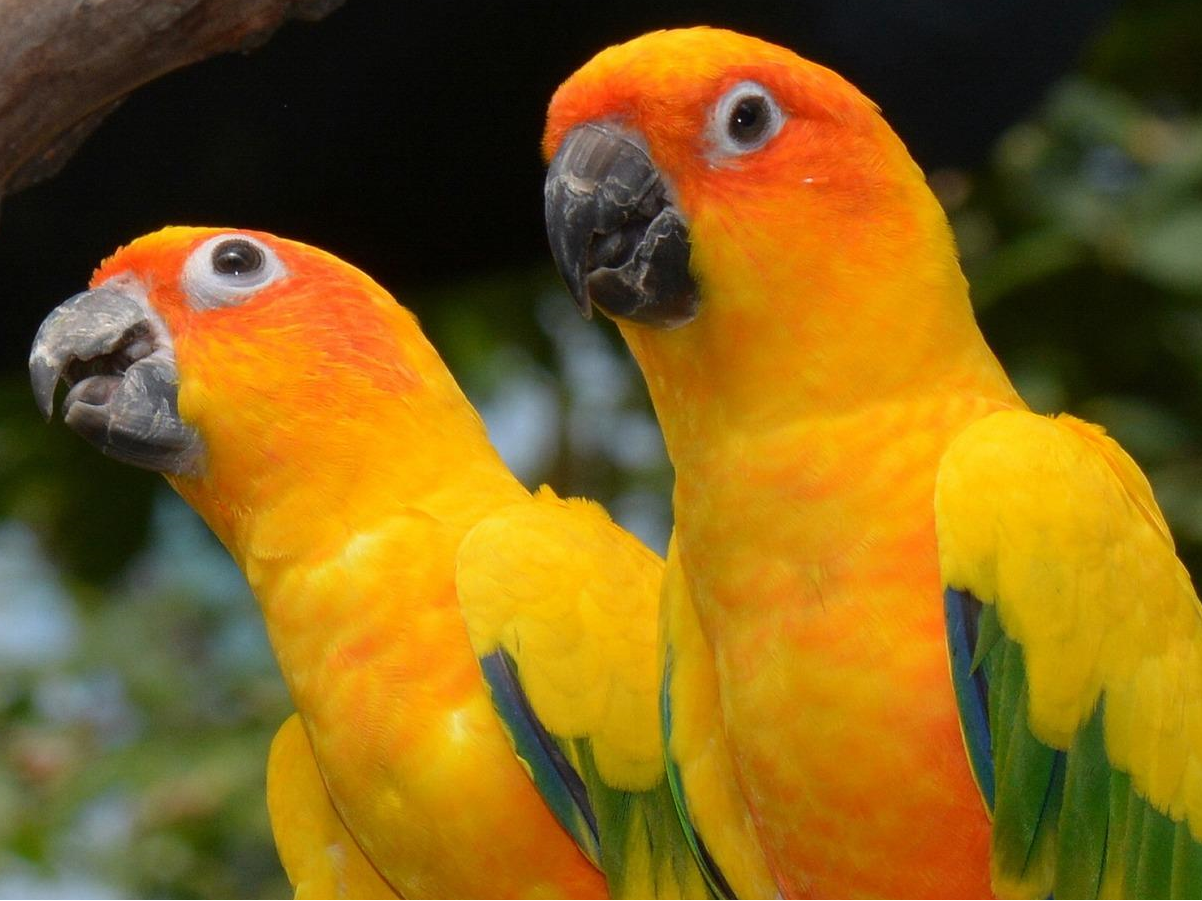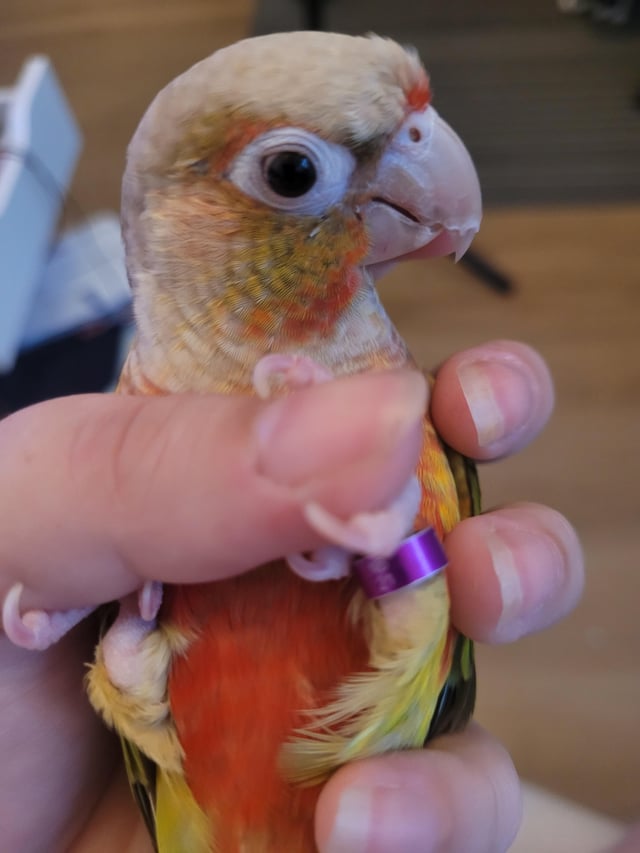Conures are popular pet birds known for their vibrant colors, playful nature, and unique personalities. However, as a responsible pet owner, it is essential to be aware of any changes in your conure’s health and well-being. One common issue that conure owners may encounter is beak peeling.

Credit: birdsupplies.com

Credit: www.reddit.com
Causes of Conure Beak Peeling
Beak peeling in conures can occur due to various reasons. It is important to identify the underlying cause to provide proper treatment and prevent further complications. Here are some common causes of conure beak peeling:
- Natural Beak Growth: Conure beaks naturally grow and periodically shed their outer layers. This shedding process helps them maintain a healthy and sharp beak. Peeling in this case is a normal and healthy occurrence.
- Injury or Trauma: A conure may injure its beak while playing, chewing on hard objects, or during an accident. If the peeling is accompanied by bleeding, swelling, or signs of discomfort, it is crucial to get your conure examined by a veterinarian.
- Nutritional Deficiencies: An imbalanced diet lacking essential nutrients can lead to beak problems in conures. Insufficient intake of Vitamin A, calcium, or protein can cause beak abnormalities, including peeling.
- Fungal or Bacterial Infections: Conure beaks can become infected due to fungal or bacterial growth. Infections can result in peeling, discoloration, or unusual texture on the beak’s surface.
- Environmental Factors: Dry or excessively humid environments can impact a conure’s beak health. Lack of moisture can lead to dryness and peeling, while excessive humidity can encourage the growth of bacteria or fungi.
Treatment for Conure Beak Peeling
The appropriate treatment for conure beak peeling depends on the underlying cause. If you notice your conure’s beak peeling, it is recommended to consult with a qualified avian veterinarian. They can provide a thorough examination and diagnose the problem accurately. Here are some common treatment options:
| Cause | Treatment |
|---|---|
| Natural Beak Growth | No treatment required; regular beak maintenance through foraging and gnawing |
| Injury or Trauma | Wound cleaning, medication if required, and monitoring for any signs of infection |
| Nutritional Deficiencies | Improving the diet by incorporating a variety of fresh fruits, vegetables, pellets, and supplements as recommended by the vet |
| Fungal or Bacterial Infections | Prescribed antifungal or antibacterial medication as per the vet’s recommendation |
| Environmental Factors | Adjusting the humidity levels in the conure’s environment and keeping it clean and hygienic |
Remember, self-diagnosis or using over-the-counter medications without professional guidance is not advisable, as it can worsen the condition and potentially harm your conure.
Preventing Beak Peeling in Conures
Prevention is always better than cure, and there are several measures you can take to ensure the optimal beak health of your conure:
- Balanced Diet: Provide a well-balanced diet rich in essential nutrients, including fresh fruits, vegetables, and high-quality pellets formulated for conures. Consult with your veterinarian for specific dietary recommendations.
- Regular Vet Check-ups: Schedule regular wellness visits with an avian veterinarian to monitor your conure’s health and catch any potential issues early.
- Avoid Excessive Hard Chewing: While conures enjoy chewing on toys and perches, it is essential to provide them with safe and appropriate chewing materials. Avoid excessively hard or sharp objects that may cause injury to the beak.
- Maintain Optimal Environment: Ensure the humidity levels in your conure’s living space are suitable. Clean the cage regularly to prevent the growth of bacteria or fungi.
- Stress Reduction: Minimize stress in your conure’s life by providing a calm and enriching environment. Avoid sudden changes in routine or exposure to loud noises and harmful chemicals.
By implementing these preventative measures, you can maintain the overall health and well-being of your conure, including its beak health.
Frequently Asked Questions For Conure Beak Peeling : Discover The Secrets To A Healthy And Beautiful Beak
Why Is My Conure’s Beak Peeling?
Peeling of a conure’s beak can be a natural process or indicate an underlying health issue.
What Causes A Conure’s Beak To Peel?
Possible causes for a conure’s beak peeling include nutritional deficiencies, injury, or an infection.
How Can I Prevent My Conure’s Beak From Peeling?
Maintain a balanced diet rich in fruits, vegetables, and cuttlebones to provide essential nutrients to your conure.
Is Beak Peeling In Conures Normal?
Some beak peeling is normal as it happens during the growth process, but excessive peeling may require veterinary attention.
Conclusion
Conure beak peeling can occur due to natural growth, injury, nutritional deficiencies, infections, or environmental factors. It is crucial to identify the underlying cause and consult with an avian veterinarian for proper diagnosis and treatment. Additionally, taking preventive steps such as providing a balanced diet, regular vet check-ups, and maintaining a suitable living environment can help prevent beak peeling in conures. Keeping your conure healthy and ensuring their beak is in good condition contributes to their overall quality of life and happiness.

